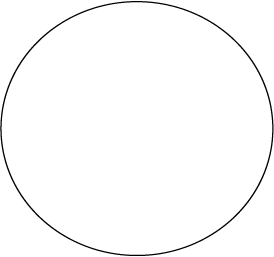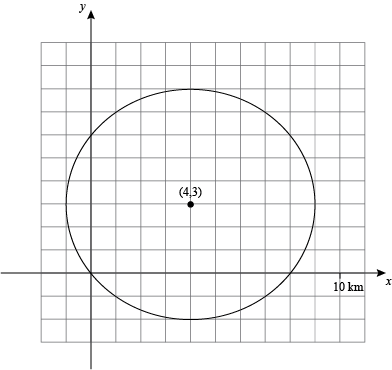Let's take a look at (surprise, surprise) a circle.

We don't know anything about this circle. Sure, we've spent almost a whole chapter learning about properties of circles in general, but we don't know anything about this circle in particular. What's its favorite color? How does it spend its leisure time? Does it like artificial banana flavor or not?
For example, we learned at the beginning of the chapter that two things define a circle:
1. Where it is (center)
2. How big it is (radius)
But without any context, we don't know where this circle is or how big it is. We know that it has some center and some radius, and for many mathematicians that's enough. But if we're practical people who want to put this circle to work, we need to get some specifics (and probably a résumé of some kind).
We need to know whether the circle is in Chile or China. We need to know if it's the right size to be a wheel on a shopping cart or a fence around the Smiths' disk-shaped ranch. Maybe it's not even on Earth. Maybe it's as big as Earth. After all, scale is pretty important.
Fortunately, in this case, since we simply made up the circle, we can make up its characteristics. Let's say its radius is 5 km and it's located at a point 4 km east and 3 km north of the center of Sydney, Australia.
Now if we want to give that information to somebody else, we can tell them using those cumbersome English words, or we can take a leaf from Descartes's sketch pad and use a coordinate plane with appropriate labels.

Isn't that nice? And we didn't even have to pay for airfare.